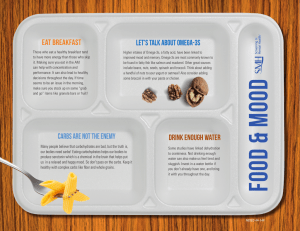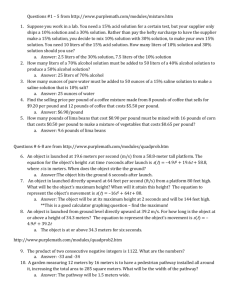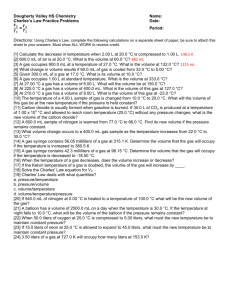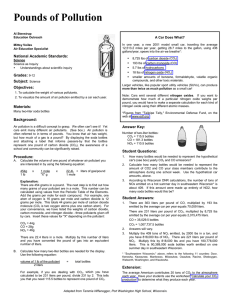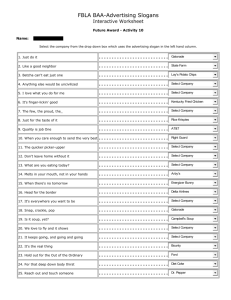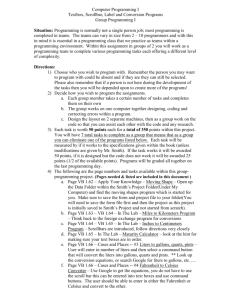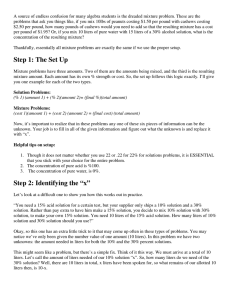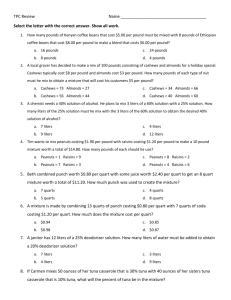carbs and water - Mountain Madness
advertisement
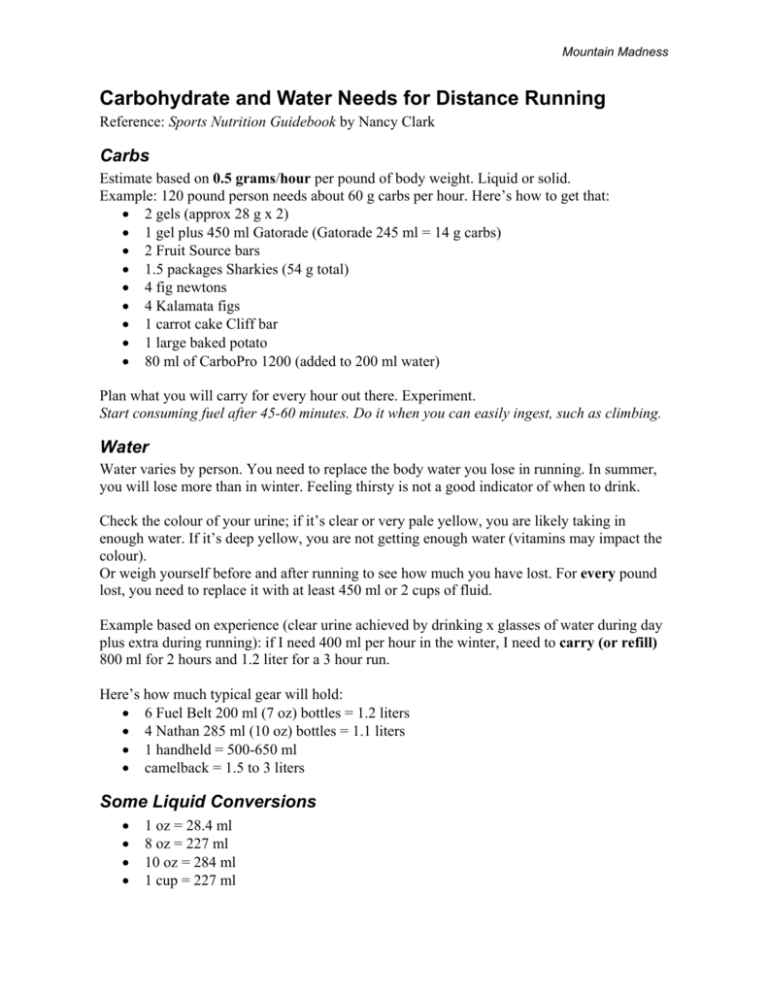
Mountain Madness Carbohydrate and Water Needs for Distance Running Reference: Sports Nutrition Guidebook by Nancy Clark Carbs Estimate based on 0.5 grams/hour per pound of body weight. Liquid or solid. Example: 120 pound person needs about 60 g carbs per hour. Here’s how to get that: • 2 gels (approx 28 g x 2) • 1 gel plus 450 ml Gatorade (Gatorade 245 ml = 14 g carbs) • 2 Fruit Source bars • 1.5 packages Sharkies (54 g total) • 4 fig newtons • 4 Kalamata figs • 1 carrot cake Cliff bar • 1 large baked potato • 80 ml of CarboPro 1200 (added to 200 ml water) Plan what you will carry for every hour out there. Experiment. Start consuming fuel after 45-60 minutes. Do it when you can easily ingest, such as climbing. Water Water varies by person. You need to replace the body water you lose in running. In summer, you will lose more than in winter. Feeling thirsty is not a good indicator of when to drink. Check the colour of your urine; if it’s clear or very pale yellow, you are likely taking in enough water. If it’s deep yellow, you are not getting enough water (vitamins may impact the colour). Or weigh yourself before and after running to see how much you have lost. For every pound lost, you need to replace it with at least 450 ml or 2 cups of fluid. Example based on experience (clear urine achieved by drinking x glasses of water during day plus extra during running): if I need 400 ml per hour in the winter, I need to carry (or refill) 800 ml for 2 hours and 1.2 liter for a 3 hour run. Here’s how much typical gear will hold: • 6 Fuel Belt 200 ml (7 oz) bottles = 1.2 liters • 4 Nathan 285 ml (10 oz) bottles = 1.1 liters • 1 handheld = 500-650 ml • camelback = 1.5 to 3 liters Some Liquid Conversions • • • • 1 oz = 28.4 ml 8 oz = 227 ml 10 oz = 284 ml 1 cup = 227 ml

